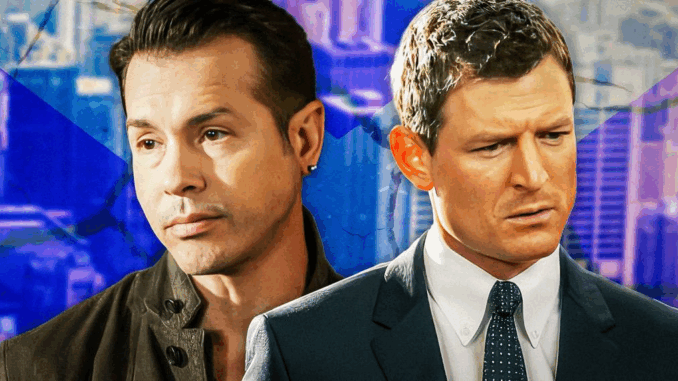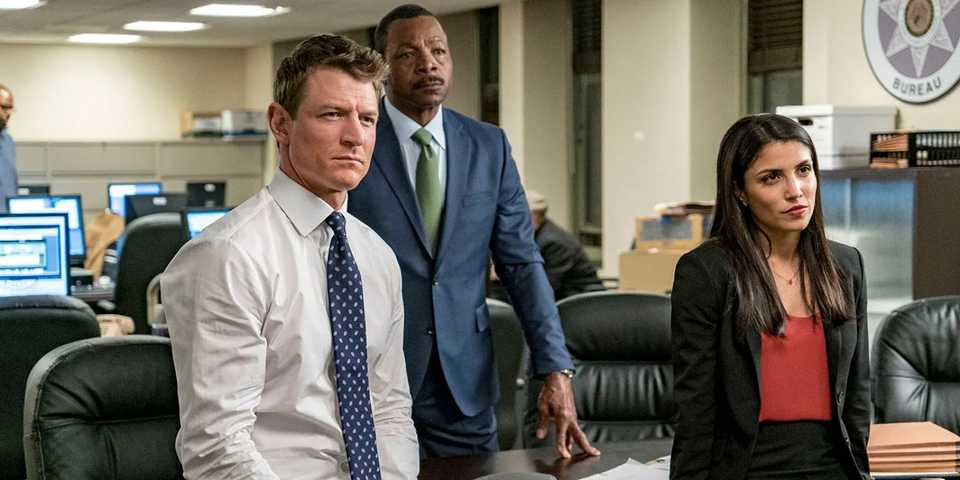
Introduction – A Spinoff That Never Got Its Day in Court
The One Chicago universe is a television powerhouse. With Chicago Fire, Chicago P.D., and Chicago Med still dominating ratings, it’s easy to forget that there was once a fourth sibling: Chicago Justice. Launched with big expectations and even bigger names, this legal drama had all the ingredients of a hit—yet it barely lasted a season.
So what went wrong? Why did Chicago Justice fail when its siblings thrived? Let’s dig into the courtroom drama behind the show’s unexpected downfall.
The Birth of a Legal Drama in the One Chicago Universe
The Vision Behind Chicago Justice
Created by the legendary Dick Wolf, Chicago Justice was intended to complete the circle of first responders: after the firefighters, cops, and doctors, came the lawyers and prosecutors. It promised a gritty, character-driven take on the legal system with that signature One Chicago flair.
Strong Crossovers to Launch the Series
The show debuted as part of a massive One Chicago crossover event in 2017, instantly introducing it to fans of the franchise. Viewers met Assistant State’s Attorney Peter Stone (played by Philip Winchester), a tough-as-nails prosecutor with a moral compass that sometimes ran against the system.
The Cast Had Star Power, But…
Familiar Faces, Limited Chemistry
Alongside Winchester were familiar names like Carl Weathers as State’s Attorney Mark Jefferies and Joelle Carter (Justified) as investigator Laura Nagel. The performances were solid—but something didn’t quite click.
The chemistry that made Chicago P.D.‘s squad or Chicago Fire’s house feel like family just wasn’t there in Justice. The cast was talented, but their dynamic felt stiff and disconnected. For a spinoff to thrive, viewers need to care. And caring starts with connection.

Ratings That Couldn’t Justify Renewal
Viewership Started Weak and Stayed There
Despite the hype, Chicago Justice struggled to draw consistent viewers. Airing on Sunday nights—a notoriously tough slot—it never gained the same traction as its siblings. Ratings hovered in the low millions, which was a red flag for NBC.
Competition Crushed It
Let’s not forget the competition. At the time, Chicago Justice was up against The Walking Dead, HBO dramas, and Sunday sports. Tough crowd. Add to that an audience already loyal to other One Chicago shows, and the odds weren’t in its favor.
Identity Crisis – Was It Law & Order or One Chicago?
Too Similar to Law & Order
One of the biggest criticisms? It felt too much like Law & Order. Viewers wanted the high-stakes intensity of the Chicago universe. Instead, they got a courtroom drama that leaned heavily on procedure and speeches. The show struggled to define itself.
Was it a spinoff of Chicago P.D. or a cousin of Law & Order? The lines were blurry—and confusing.
No Strong Emotional Hook
Shows like Chicago Med and Chicago Fire tug at your heartstrings. They give you family, romance, and pain. Chicago Justice lacked those layers. It was too focused on the courtroom, and not enough on the people behind the arguments.
The Writing Was Smart—But Maybe Too Smart
Complex Cases, Limited Payoff
The writing team didn’t shy away from complicated cases. Topics ranged from police misconduct to terrorism to political corruption. Great for storytelling—but without long-term character arcs, viewers didn’t have a reason to come back week after week.
Not Enough Serialized Drama
Unlike its sibling shows, Justice didn’t lean into serialized storytelling. It didn’t build suspense over episodes. Every case wrapped up neatly, and in the world of binge-worthy TV, that formula just doesn’t work anymore.
A Victim of Network Decisions
NBC Pulled the Plug After One Season
Despite its connection to the powerhouse One Chicago brand, NBC canceled Chicago Justice after just 13 episodes. The show never got the chance to build an audience or develop deeper character arcs.
Other Shows Got the Green Light Instead
At the time, NBC was expanding Law & Order: SVU and launching new projects. Justice simply didn’t fit into the network’s long-term plan—even with Dick Wolf behind it.
Fans Were Shocked—and Frustrated
A Loyal (But Small) Fanbase
Some fans were genuinely heartbroken. Social media buzzed with disappointment and confusion. After all, this was One Chicago. It wasn’t supposed to fail.
“We Deserved More”
Many fans argued that 13 episodes wasn’t enough to judge the show’s potential. With a bit more time—and better scheduling—it could have evolved into something great.
What Happened to the Characters?
Peter Stone’s Surprising Comeback
The biggest twist? Peter Stone didn’t disappear. After Chicago Justice was canceled, Philip Winchester’s character jumped over to Law & Order: SVU as the new ADA, giving fans a bit of closure and continuity.
No Revival for the Others (Yet)
Other characters weren’t so lucky. Despite fan requests, no official returns have been announced for Nagel, Jefferies, or the rest of the team.
Could Chicago Justice Return Someday?
The Door Isn’t Totally Closed
Dick Wolf has said in interviews that he still believes in the concept. With the rise of streaming and the continued strength of the One Chicago brand, a revival isn’t impossible—just unlikely for now.
Fans Still Want Justice… Again
Fan campaigns still pop up occasionally, calling for NBC or even Peacock to bring the show back. And with nostalgia running high in TV these days, you just never know.
Conclusion – A Case Closed Too Soon
Chicago Justice had potential—strong writing, a great cast, and the backing of one of TV’s biggest franchises. But between an identity crisis, bad timing, and weak ratings, it just couldn’t find its place.
Still, the show wasn’t a total loss. It gave us Peter Stone, tackled bold themes, and tried something different. And even though it’s gone, Chicago Justice remains a curious “what if” in the ever-growing One Chicago universe.
FAQs
1. Why was Chicago Justice canceled after just one season?
NBC canceled it due to low ratings, lack of strong viewer engagement, and tough competition on Sunday nights.
2. Was Chicago Justice connected to Law & Order?
Yes, stylistically and tonally, it was very similar to Law & Order, and Peter Stone later appeared on SVU.
3. Is there any chance of a revival?
While unlikely, it’s not impossible. Dick Wolf has hinted that he still believes in the concept.
4. What made Chicago Justice different from the other One Chicago shows?
It focused solely on the legal system and didn’t offer the emotional, personal storylines that made other shows in the franchise more engaging.
5. Where can I watch Chicago Justice now?
You can stream all 13 episodes on platforms like Peacock or purchase them on digital platforms like Amazon or iTunes.
